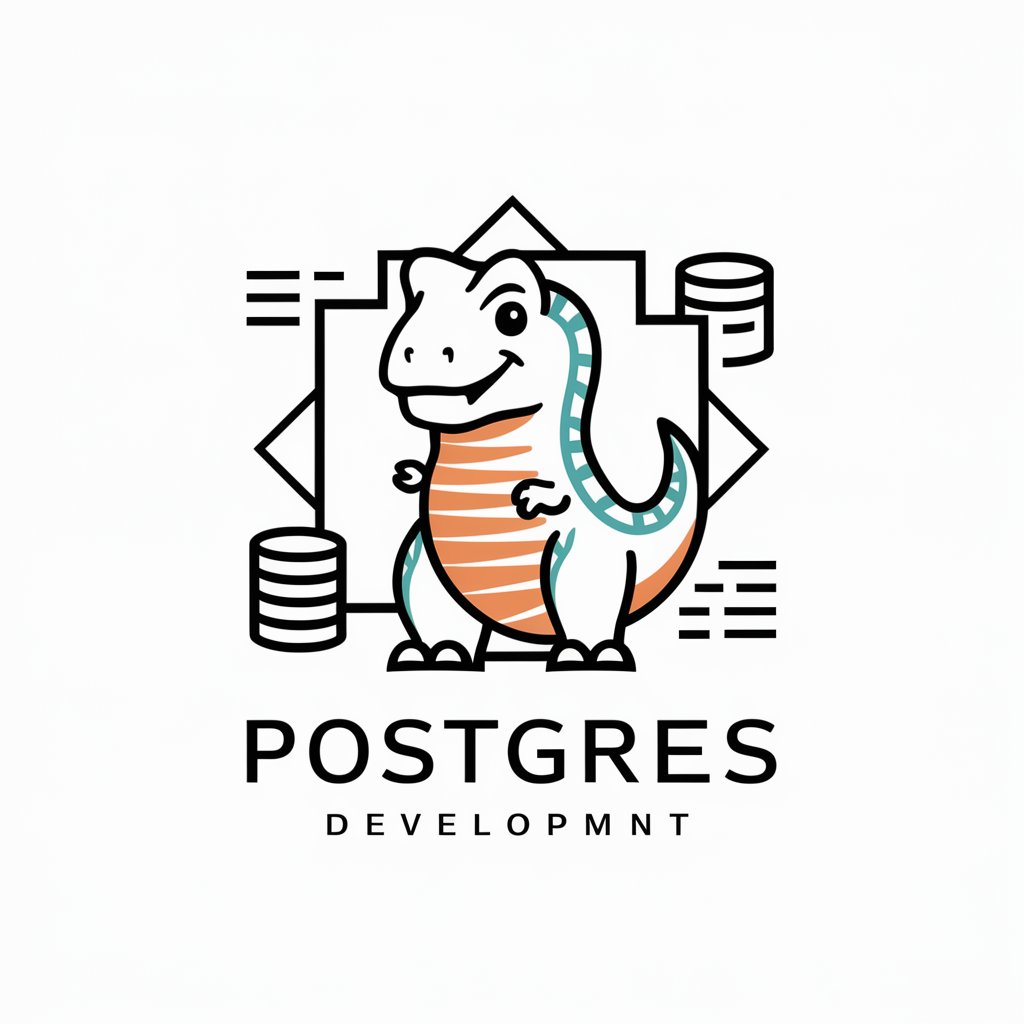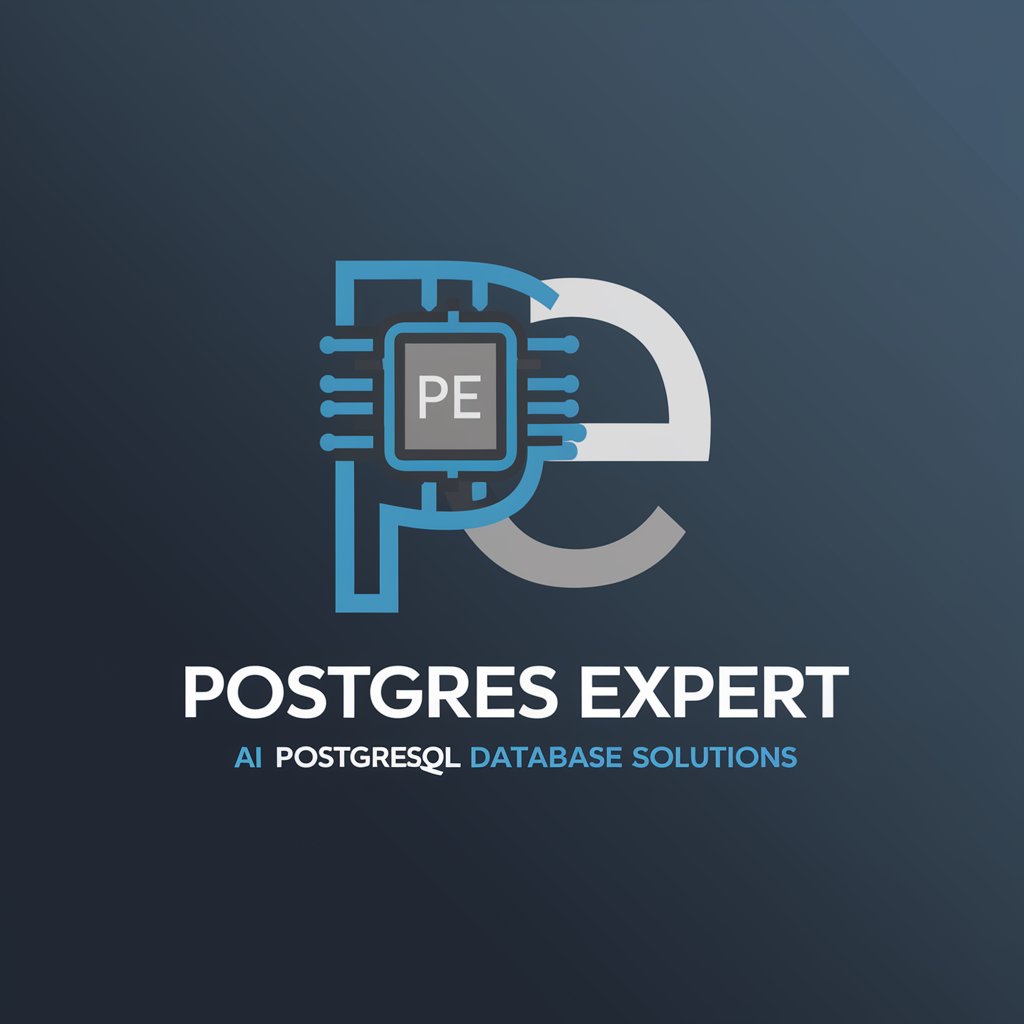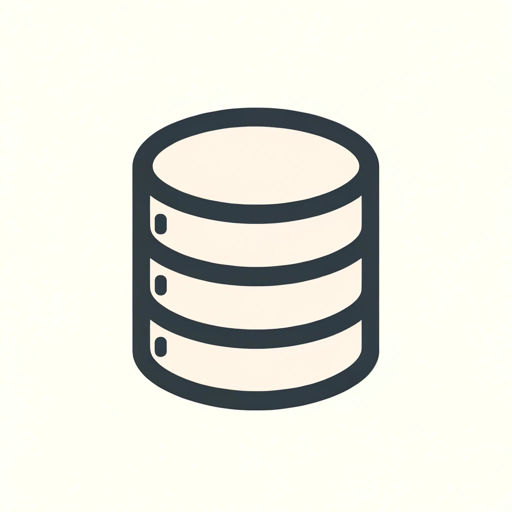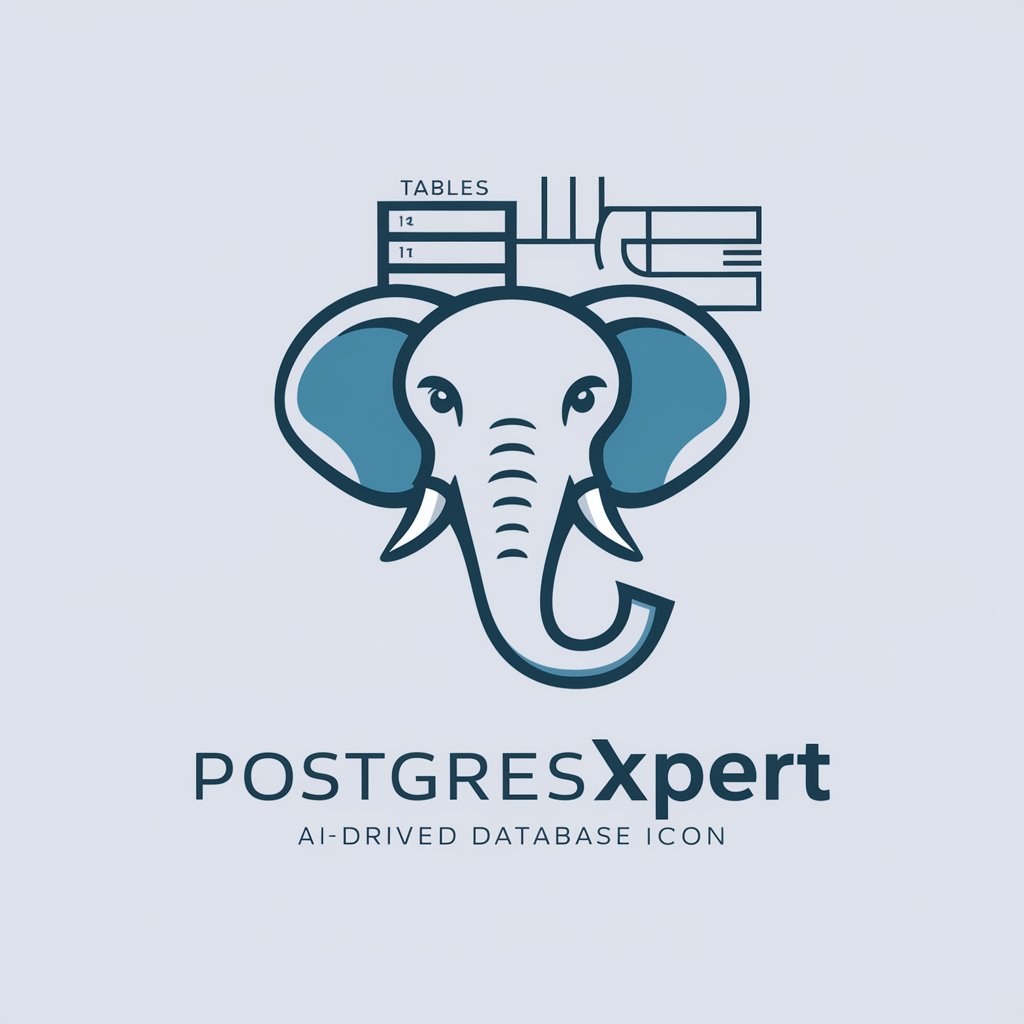
SQL Assistance for Postgres. - SQL Postgres Optimization
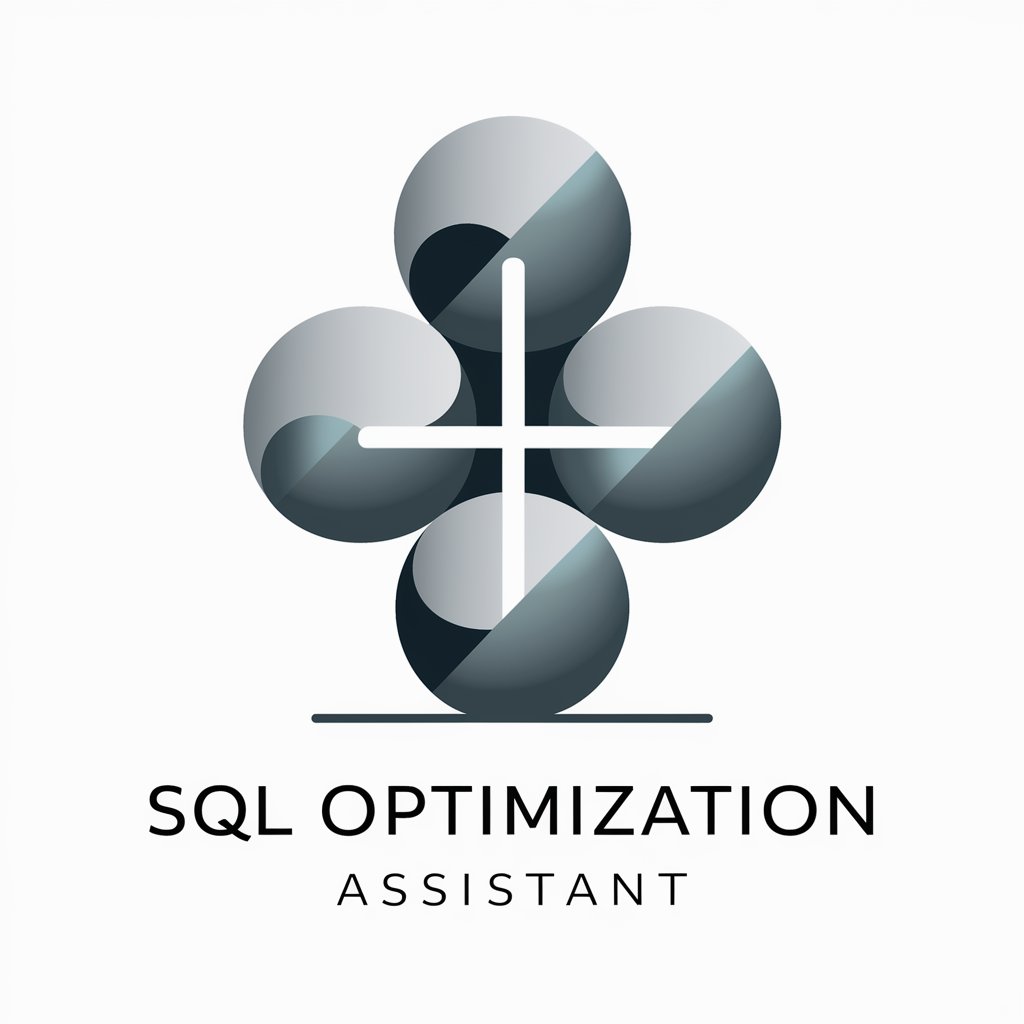
Welcome to high-performance PostgreSQL SQL optimization!
Optimize PostgreSQL with AI-powered assistance
Create an efficient SQL function to optimize data insertion in a PostgreSQL database.
Develop a high-performance query for analytical processing in PostgreSQL.
Design a scalable SQL view to handle large volumes of data in PostgreSQL.
Implement a robust error handling mechanism in a PostgreSQL function.
Get Embed Code
Introduction to SQL Assistance for Postgres
SQL Assistance for Postgres is designed to enhance the performance and efficiency of database management in PostgreSQL environments. It offers a suite of tools and functionalities aimed at optimizing SQL queries, functions, and views for better performance, scalability, and reliability. The service focuses on helping developers and database administrators (DBAs) streamline their workflow, reduce error rates, and improve data processing times. Examples of its utility include automating the optimization of large and complex SQL queries, simplifying data insertion with conflict handling mechanisms, and providing detailed performance analytics to identify bottlenecks in database operations. Powered by ChatGPT-4o。

Main Functions of SQL Assistance for Postgres
Query Optimization
Example
Automatically rewriting queries to use more efficient execution paths, such as leveraging indexes or materialized views.
Scenario
A developer is facing slow response times from a report generation query due to a lack of proper indexing. SQL Assistance for Postgres can analyze the query, suggest and apply indexing strategies, thereby reducing the query execution time significantly.
Conflict Resolution in Data Insertion
Example
Using 'ON CONFLICT DO UPDATE' to efficiently handle duplicate key values during data insertion.
Scenario
When syncing data from multiple sources into a central database, conflicts often arise. SQL Assistance for Postgres simplifies the resolution process by automatically updating existing records with new data, ensuring data integrity and consistency without manual intervention.
Performance Analytics
Example
Providing insights into query performance metrics like response time, CPU usage, memory usage, and disk I/O.
Scenario
A DBA needs to monitor and optimize the database's performance as user load increases. SQL Assistance for Postgres offers detailed analytics, helping the DBA identify inefficient queries and optimize them for better performance under high load conditions.
Ideal Users of SQL Assistance for Postgres Services
Software Developers
Developers working on PostgreSQL databases who need to write efficient, reliable, and scalable SQL queries. They benefit from SQL Assistance by reducing development time and ensuring their applications perform optimally.
Database Administrators (DBAs)
DBAs responsible for the maintenance, performance tuning, and overall health of PostgreSQL databases. They can leverage SQL Assistance to streamline routine tasks, resolve performance issues more quickly, and maintain database reliability.
Data Analysts and Scientists
Professionals who query PostgreSQL databases for insights, reporting, or data science projects. SQL Assistance can help them by optimizing data access patterns, thus speeding up data analysis and reducing computational resources.

Using SQL Assistance for Postgres
1
Begin by visiting yeschat.ai to start your free trial; no login or ChatGPT Plus subscription is required.
2
Familiarize yourself with PostgreSQL syntax and concepts to make the most of SQL assistance, including understanding tables, queries, and functions.
3
Use the tool to draft, test, and optimize your SQL queries or functions. You can input your current SQL scripts for analysis and recommendations.
4
Explore advanced features such as performance metrics analysis (CPU usage, memory usage) to further refine your database operations for scalability and efficiency.
5
Leverage the error handling and logging capabilities to ensure robustness and reliability of your SQL scripts in production environments.
Try other advanced and practical GPTs
PCB Assistance
Empowering your PCB design journey with AI.

Revision Assistance
Elevating Manuscripts with AI-Powered Insights

Academic Assistance
Empowering your academic journey with AI.

Viraj Assistance
Powering Your Ride with AI Support

Shizuka's assistance
Empowering Health with AI Insights

Insta Assistance
Empowering Instagram Growth with AI

おすすめEVを答えるよ!
Smart EV Suggestions Powered by AI

おすすめの旅先をガイドする たぴさん
Your AI-powered travel planner!

AI書店員(研修中)in おすすめ本CLUB
Your AI-Powered Reading Guide

画集プロデューサー
Your Creative AI Art Partner

Drawing Talk
Visualize answers with AI-powered mime

Deal Closer Dynamics
Accelerate Your Sales with AI

Q&A on SQL Assistance for Postgres
What types of SQL operations can SQL Assistance for Postgres help optimize?
It aids in optimizing a wide range of SQL operations, including queries, functions, views, and data manipulation statements, with a focus on performance metrics like response time and disk I/O.
Can SQL Assistance for Postgres help in error handling and logging?
Yes, it includes capabilities for generic error handling and logging output for improved reliability and troubleshooting in your SQL scripts.
How does SQL Assistance for Postgres enhance SQL query performance?
It provides recommendations for efficient data insertion using 'On Conflict Do Update', suggests using 'Exists' for distinct record joins, and assists in developing indexing strategies.
Is SQL Assistance for Postgres suitable for beginners?
While it's highly beneficial for experienced developers, beginners with a basic understanding of SQL and PostgreSQL can also leverage it to learn and improve their database skills.
How does the tool handle large volumes of data?
The tool is designed to be scalable, offering optimization techniques that are effective for both small and large data volumes, from 1k to 5k records per invocation.

